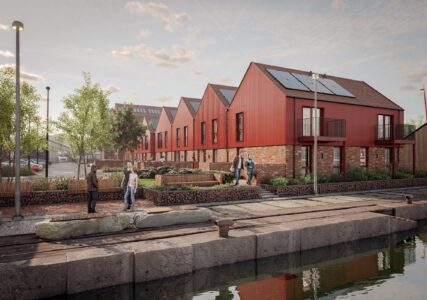When it comes to property investment in Manchester, the city’s thriving rental market offers a plethora of opportunities. However, deciding whether to invest in student housing or new-build residential properties can be challenging. In this blog post, TK Property Group delves into the pros and cons of each option to help you make an informed choice.
Student Housing
Pros:
- Consistent Demand: Manchester boasts a vibrant student population with several prestigious universities. This guarantees a constant influx of students needing accommodation, creating a reliable rental income stream.
- High Rental Yields: Student accommodation often yields higher rental returns than traditional residential properties. Multiple tenants sharing a house can generate substantial income.
- Furnished Properties: Student housing is typically furnished, reducing the initial setup costs for investors.
Cons:
- Seasonal Vacancies: Vacancies can occur during university holidays, leading to potential income gaps.
- Higher Maintenance: Students may not always take care of the property as well as long-term tenants, leading to higher maintenance costs.
- Regulations: The student housing sector is subject to specific regulations, which may require additional paperwork and compliance.
New-Build Residential Properties
Pros:
- *Long-Term Tenancies: New-build residential properties often attract professionals and families who seek stable, long-term accommodation. This minimises the risk of frequent vacancies.
- Appreciation: Manchester’s property market has shown consistent appreciation over the years. New-builds may offer better potential for capital growth.
- Lower Turnover: Tenants in residential properties tend to stay longer, reducing the time and effort spent on finding new tenants.
Cons:
- Initial Investment: New-build properties generally require a higher initial investment than student housing.
- Market Competition: The market for residential properties can be competitive, making it crucial to select the right location and type of property carefully.
- Tenant Expectations: Residential tenants often expect a higher standard of accommodation and may have more specific demands.
Conclusion
Manchester has evolved into a significant economic hub in the UK, with diverse industries, including finance, technology, and healthcare. This financial stability contributes to a steady demand for student and residential rental properties.
The city’s exceptional transport links, including the Manchester Airport, extensive rail networks, and major motorways, make it accessible to domestic and international travellers. This connectivity enhances Manchester’s appeal to a broad tenant base.
The decision between investing in student housing and new-build residential properties ultimately depends on your financial goals, risk tolerance, and investment strategy. Student housing offers higher rental yields and a consistent demand but comes with seasonal vacancies and potentially higher maintenance costs. On the other hand, new-build residential properties offer stability, long-term tenancies, and the potential for capital appreciation but require a more considerable upfront investment.
Before deciding, conducting thorough research, assessing your financial situation, and considering your long-term investment goals is essential. Additionally, seeking advice from property experts and consulting with a property management company can help you navigate Manchester’s dynamic rental market and make a well-informed investment choice.
Whether you opt for student housing or new-build residential properties, Manchester’s property market continues to be a promising destination for property investors looking to capitalise on the city’s growth and prosperity.









